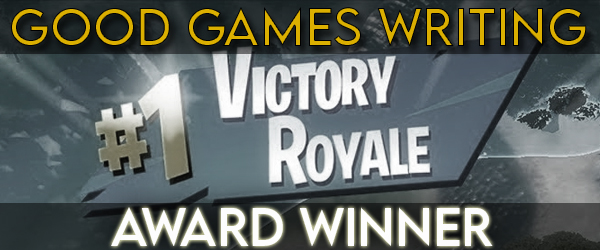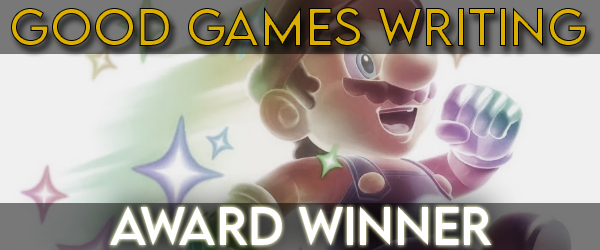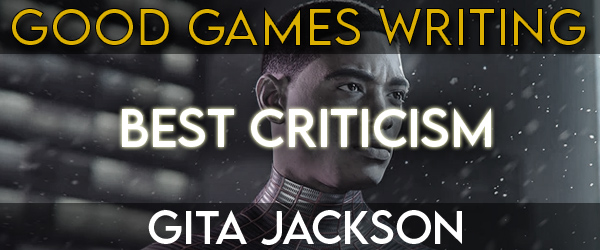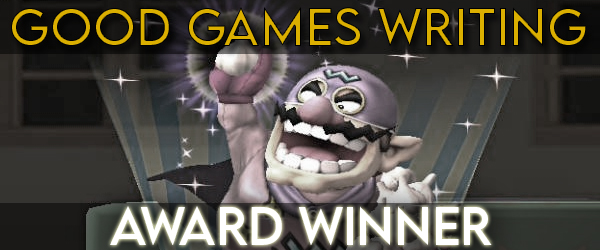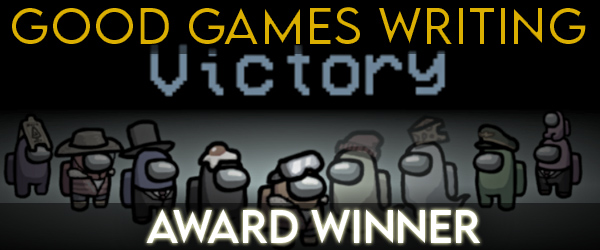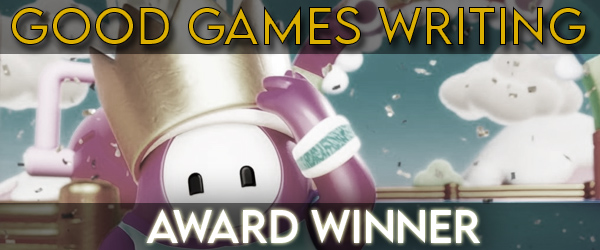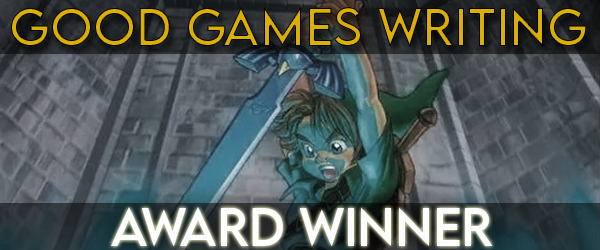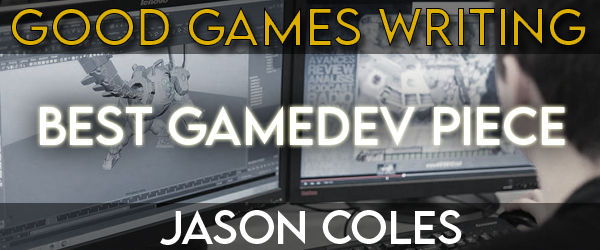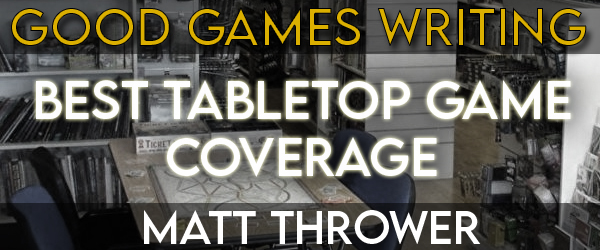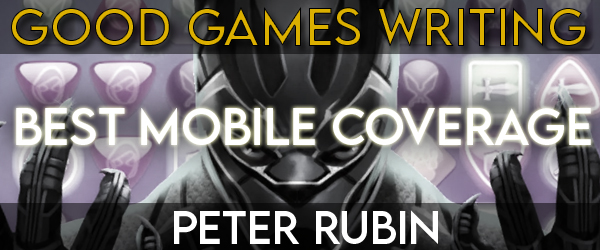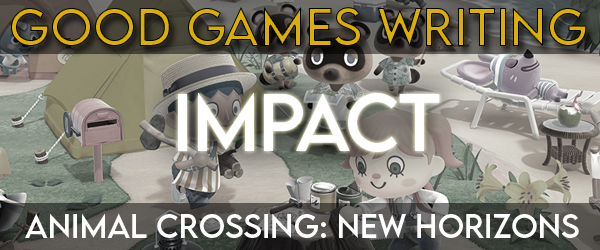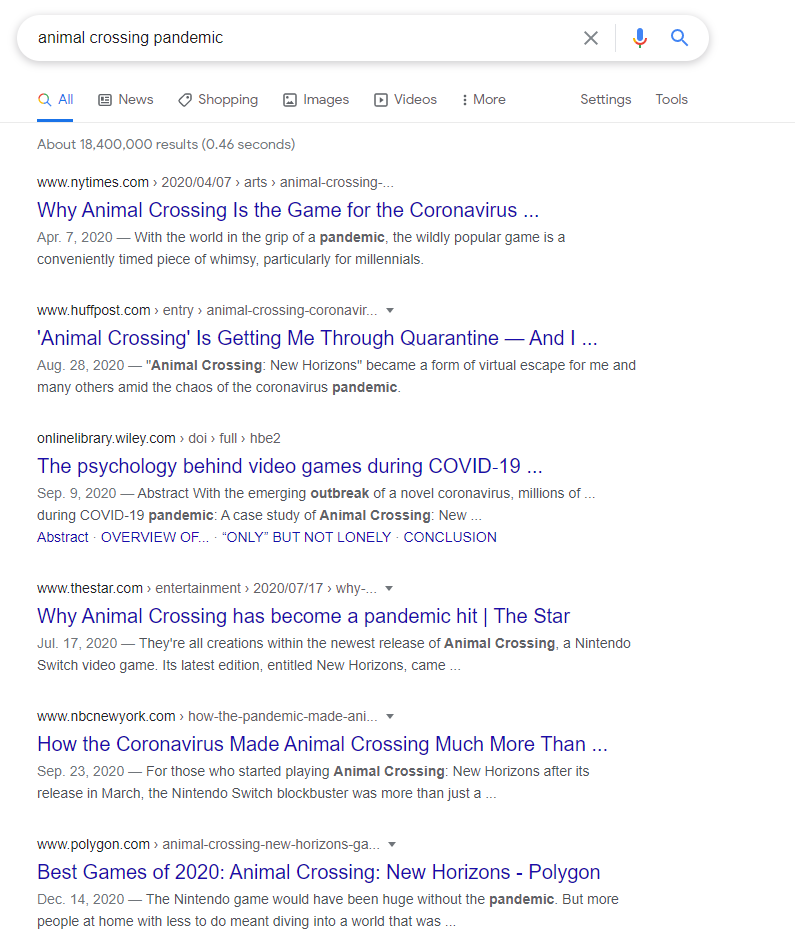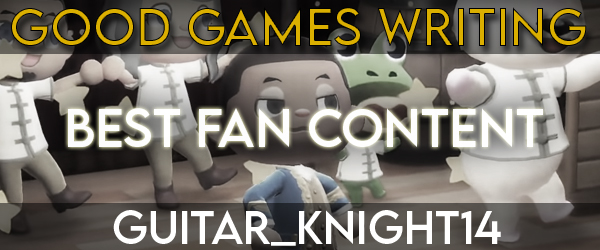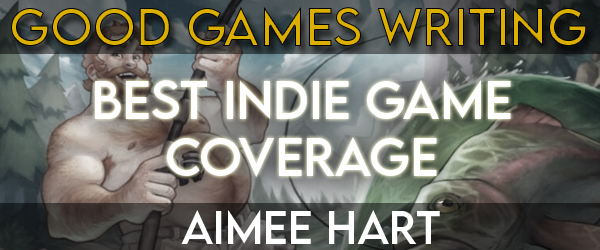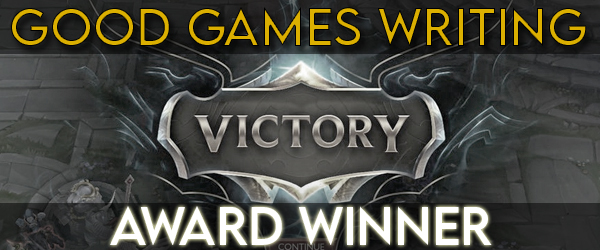Our final day of awards continues with our most openly defined category.
BEST FEATURE
This category exists for the pieces that don’t easily fit any other description. What is a feature? If it contains interviews is it not reporting? If it contains critical analysis is it not criticism? Must a feature exclusively be wrought from one’s own mind thus making it something of an essay or blog? We don’t have the answer to that. What does a Features Editor commission, anyways?
We don’t have ready answers to that. This award and its nominees, then, are simply works that stand on their own merits, works that create intrigue and reflection, while representing some of the best writers in this space.
Nowhere is it more obvious the amorphous nature of this category than Natalie Flores’ “The mainstream FPS only knows one kind of Latina” which was also nominated for Best Criticism. That Latinas are all to often hypersexualized and criminal in media is an issue worth addressing. Flores also scored a nod for her piece on feeling represented in The Last of Us Part II, a first:
For the first time in a game like this, I don’t feel like I’m picking tiny scattered crumbs, grouping them together in a frustrating, pathetic, and redundant effort to make them seem like they create something bigger and more significant than they do. I don’t have to do the labor of putting them together to figure out if there is something I can see that reflects me. Ellie and Dina make me feel seen in a way I’ve never had before in a game with this high of a budget and this much cultural weight, both as individuals and as an inseparable couple.
Staying on Paste, Dia Lacina’s essay on righteous violence and Beatdown City’s willingness to allow you to pummel racists is evocative, and it’s approach to violence includes state-led and emotional violence, as well.
Violence is central to Kane & Lynch 2, according to Cole Henry, who examines both the needless cruelty in it all and the grainy, censored approach to displaying the game’s violence.
Over on Uppercut, Zeb Larson argues that video games are “a critical way to understand how imperial fantasies play out”, an evolution of Victorian era colonial thinking (Rudyard Kipling comes to mind) in which “many of those same messages are filtered down through video games, whether as more war pornography, or more subtly, through adventure and fantasy games.”
Renata Price’s sprawling essay on Valorant is tough to summarize. It’s about communication: the skill necessary for in-game success, on one hand, and the evolution of someone finding a voice and all that entails. It’s about rot: the rotting feeling of dysphoria and the rot that threatens to engulf the communities surrounding games like Valorant. It is a piece deserving of every minute of your time as it tells the story of transition.
Battle Royales are also the focus of Vikki Blake’s piece on NME, where she appreciates the time commitment, or lack thereof, in games like PUBG. The Games as a Service model, Blake opines, creates situations where one falls behind, where both time and money come at a premium. The Fortnite‘s of the world reward play but don’t demand attention in quite the same way.
Ash Parrish takes a one-two punch nomination with a quick piece on the majesty of the song “Snake Eater”. It gives just enough context on the song and the moment surrounding its in-game introduction to warrant attention but the real reward is the follow-up piece.
Yakuza: Like A Dragon serves as inspiration for several nominees at The Goodies. Liana Ruppert finds in it a treatment of the homeless that “takes special care to explore in a thoughtful and helpful way“.
Business takes over the remaining slots of this category. There’s Simon Parkin’s expansive interview with Shigeru Miyamoto done in typical Parkin style, whose inquisitive nature manages to challenge Mario’s maker himself, while allowing Miyamoto to speak at length.
Then there’s Matt Paprocki who we know to be able to find stories years in the making…his penchant for retro games is a strength we’ve come to enjoy. In this case, it turns into reporting on crunch from a decade-and-a-half ago, and it involves stories of wilted flowers, in-house laundry, weekend crunch, and more.

CD Projekt Red wanted everyone to talk about Cyberpunk 2077. They got their wish.
Stacey Henley castigates the game, calling it a “commodification” that objectifies trans people, an unsurprising product given the developer’s social media history.
At every juncture, CD Projekt chose to highlight the “edgy” aspects of the release, doubling-down on their approach.
Cyberpunk 2077’s advertising has been saying the quiet part loud. It has maintained the spiky, anti-SJW, anti-woke persona throughout its marketing campaign, careful to always pepper any diverse characters’ inclusion with stereotyping or humor designed to mock its own ideas. As such, it has earned an army of fans who will defend it from criticism, whether that be from accusations of transphobia, racism, or even crunch. With the specter of GamerGate still looming over gaming, the company may have even gained fans through this reactionary and edgy marketing style.
This might be fine on its own: If it were simply marketing, if CD Projekt didn’t walk its walk, it might be something close to passable. But Cyberpunk 2077 lacks a meaningful trans perspective, to say nothing about general awareness around racist imagery:
No one sees what’s in my pants, but everyone hears my voice. To truly create a character who is trans like me, I would want a more typically “male” voice in a more typically “female” body. The junk, especially in a first-person game, isn’t that important to me. The fact that Cyberpunk has fixated on the junk as the ultimate feature of a trans person, yet given no consideration for voice, and then repeatedly joked about customizable genitals in its marketing efforts, shows the complete lack of a trans perspective in both the design and in the advertising of the game.
Stacey Henley doesn’t shy away from naming the approach used by CD Project Red. Unfortunately, that approach is likely to be used again given the marketing’s success.

